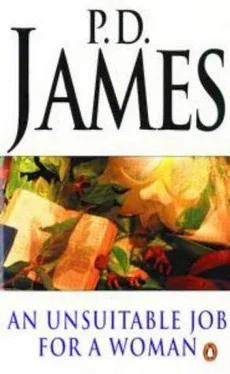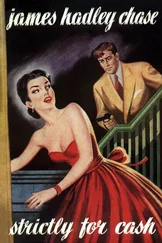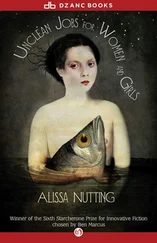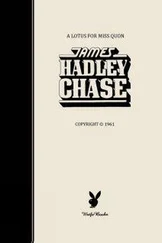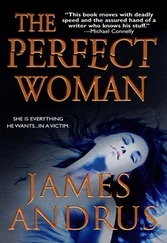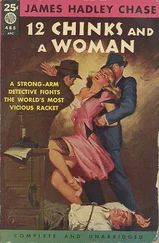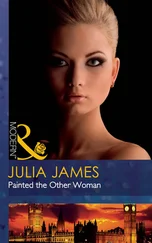'And after you'd sacked him, you never inquired how he got on. You didn't even come to the funeral!'
He had brought a chair over and had seated himself beside her. He handed her a glass of water. The glass was very cold but comforting and she was surprised to find how thirsty she was. She sipped the cold water and sat there hiccuping gently. The hiccups made her want to laugh hysterically but she controlled herself. After a few minutes he said gently:
'I'm sorry about your friend. I didn't realize that your partner was the Bernie Pryde who once worked with me. It's rather worse than that, actually. I'd forgotten all about him. If it's any consolation to you, this case might have ended rather differently if I hadn't.'
'You sacked him. All he ever wanted was to be a detective and you wouldn't give him a chance.'
'The Metropolitan Police hiring and firing regulations aren't quite as simple as that. But it's true that he might still have been a policeman if it hadn't been for me. But he wouldn't have been a detective.'
'He wasn't that bad.'
'Well, he was, you know. But I'm beginning to wonder if I didn't underrate him.'
Cordelia turned to hand him back the glass and met his eyes. They smiled at each other. She wished that Bernie could have heard him.
Half an hour later Dalgliesh was seated opposite the Assistant Commissioner in the latter's office. The two men disliked each other but only one of them knew this and he was the one to whom it didn't matter. Dalgliesh made his report, concisely, logically, without referring to his notes. This was his invariable habit. The AC had always thought it unorthodox and conceited and he did so now. Dalgliesh ended:
'As you can imagine, sir, I'm not proposing to commit all that to paper. There's no real evidence and as Bernie Pryde used to tell us, hunch is a good servant but a poor master. God, how that man could churn out his horrible platitudes! He wasn't unintelligent, not totally without judgement, but everything, including ideas, came apart in his hands. He had a mind like a police notebook. Do you remember the Clandon case, homicide by shooting? It was in 1954, I think.'
'Ought I to?'
'No. But it would have been helpful if I had.' 'I don't really know what you're talking about, Adam. But if I understand you aright, you suspect that Ronald Callender killed his son. Ronald Callender is dead. You suspect that Chris Lunn tried to murder Cordelia Gray. Lunn is dead. You suggest that Elizabeth Learning killed Ronald Callender. Elizabeth Learning is dead.'
'Yes, it's all conveniently tidy.'
'I suggest we leave it that way. The Commissioner incidentally has had a telephone call from Dr Hugh Tilling, the psychiatrist. He's outraged because his son and daughter have been questioned about Mark Callender's death. I'm prepared to explain his civil duties to Dr Tilling, he's already well aware of his rights, if you really feel it necessary. But will anything be gained by seeing the two Tillings again?'
'I don't think so.'
'Or by bothering the Surete about that French girl who Miss Markland claims visited him at the cottage?'
'I think we can spare ourselves that embarrassment. There's only one person now alive who knows the truth of these crimes and she's proof against any interrogation we can use. I can comfort myself with the reason. With most suspects we have an invaluable ally lurking at the back of their minds to betray them. But whatever lies she's been telling, she's absolutely without guilt.'
'Do you think that she's deluded herself that it's all true?'
'I don't think that young woman deludes herself about anything. I took to her, but I'm glad I shan't be encountering her again. I dislike being made to feel during a perfectly ordinary interrogation that I'm corrupting the young.'
'So we can tell the Minister that his chum died by his own hand?'
'You can tell him that we are satisfied that no living finger pressed that trigger. But perhaps not. Even he might be capable of reasoning that one out. Tell him that he can safely accept the verdict of the inquest.'
'It would have saved a great deal of public time if he'd accepted it in the first place.'
The two men were silent for a moment. Then Dalgliesh said:
'Cordelia Gray was right. I ought to have inquired what happened to Bernie Pryde.'
'You couldn't be expected to. That wasn't part of your duties.'
'Of course not. But then one's more serious neglects seldom are part of one's duty. And I find it ironic and oddly satisfying that Pryde took his revenge. Whatever mischief that child was up to in Cambridge, she was working under his direction.'
'You're becoming more philosophical, Adam.'
'Only less obsessive, or perhaps merely older. It's good to be able to feel occasionally that there are some cases which are better left unsolved.'
The Kingly Street building looked the same, smelt the same. It always would. But there was one difference. Outside the office a man was waiting, a middle-aged man in a tight blue suit, pig eyes sharp as flint among the fleshy folds of the face.
'Miss Gray? I'd nearly given you up. My name's Fielding. I saw your plate and just came up by chance, don't you know.'
His eyes were avaricious, prurient.
'Well now, you're not quite what I expected, not the usual kind of Private Eye.'
'Is there anything I can do for you, Mr Fielding?'
He gazed furtively round the landing, seeming to find its sordid-ness reassuring.
'It's my lady friend. I've reason to suspect that she's getting a bit on the side. Well – a man likes to know where he stands. You get me?'
Cordelia fitted the key into the lock.
'I understand, Mr Fielding. Won't you come in?'

P. D. James was born in Oxford in 1920 and educated at Cambridge High School. From 1949 to 1968 she worked in the National Health Service as an administrator, and the experience she gained from her job helped her with the background for Shroud for a Nightingale, The Black Tower and A Mind to Murder. In 1968 she entered the Home Office as Principal, working with the Police Department concerned with the forensic science service and later in the Criminal Policy Department. She retired in 1979 and is currently a Fellow of the Royal Society of Literature, a governor of the BBC and a member of the boards of the Arts Council and the British Council. P. D. James has twice been the winner of the Silver Dagger Award of the Crime Writers Association and in 1987 was awarded the Diamond Dagger Award for services to crime writing. In 1983 she received the OBE and was created a life peer in 1991. She has been a widow for over twenty-five years and has two children and five grandchildren.
Her other novels include Cover Her Face, Unnatural Causes, Death of an Expert Witness, A Taste for Death and Devices and Desires which was shortlisted for the Sunday Express Book of the Year Award in 1989. She is co-author, with T. A. Critchley, of The Maul and the Pear Tree. Penguin also publish A Dalgliesh Trilogy, which contains the novels Shroud for a Nightingale, The Black Tower and Death of an Expert Witness.
***

